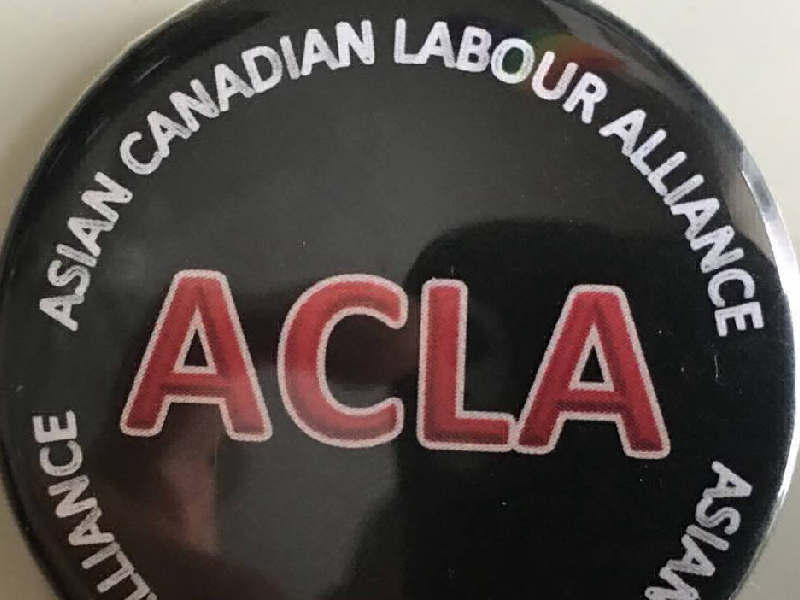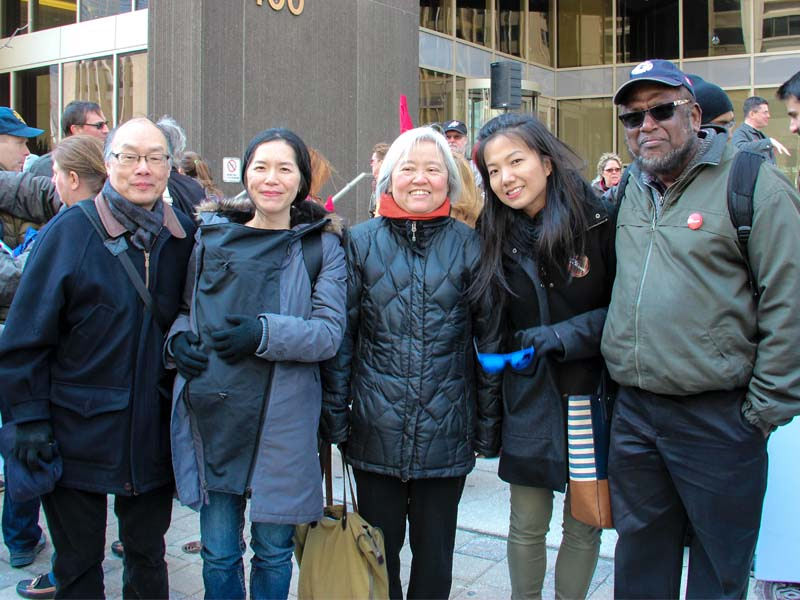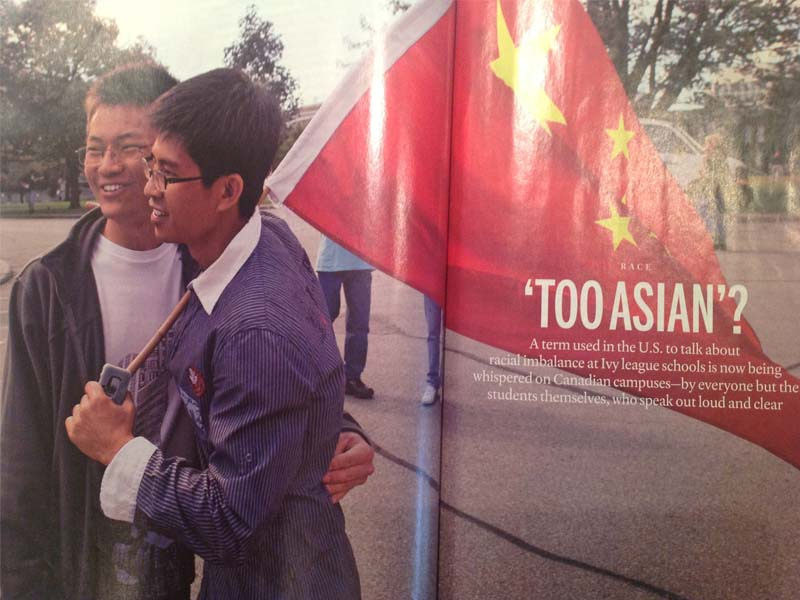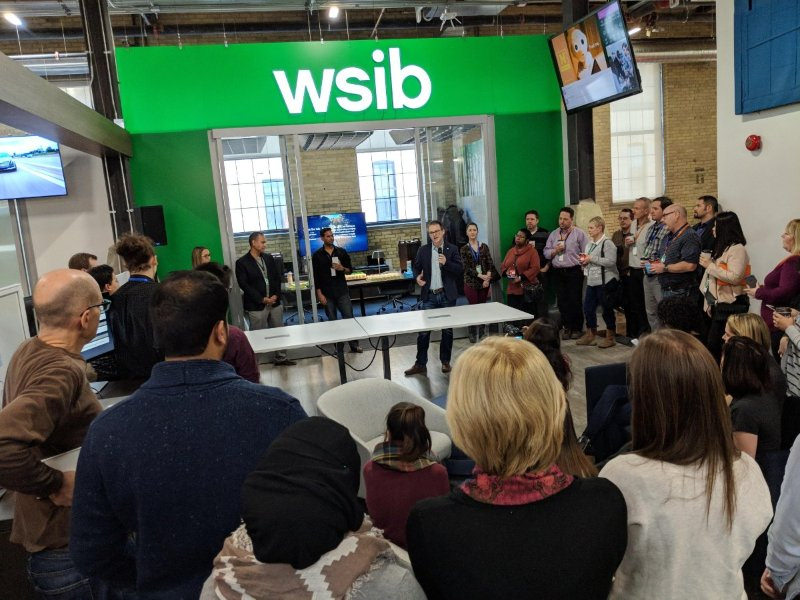|
By Nina Kalirai Racialized workers often face discrimination in the workplace because of certain barriers. These workers are often times denied certain rights, due to employers believing that these workers are uneducated in terms of workplace rights. In this interview, VIBE TALKS Correspondent Nina Kalirai discusses with Anne Lui and MaryAnne Laurico, executives of the Asian Canadian Labour Alliance, what the alliance is, how the alliance helps the community and workshops they offer. We also discuss prominent issues in the workplace that racialized workers face, as well as how the alliance represents community members. Nina: How did the Asian Canadian Labour Alliance come to be? Anne: The Asian Canadian Labour Alliance was created in 2000. About 18 years ago. It was a group of Asian labour and community activists, that saw a gap in terms of a voice for Asian workers in Canada, and decided that we needed something like this in our community and also in the house of labour. Nina: What are some of the goals of the alliance? MaryAnne: I can speak to some of the goals. We definitely want to promote and support Asian Canadian activists in leadership roles, within both the labour movement and within our community. We want to challenge racism, systemic discrimination and also internalize racism. We want to reach out to Asian communities in different languages. We want to work in solidarity with international workers, and link with migrants and temporary workers. Of course we want to encourage and support Asian Canadian workers to participate more fully in the labour movement, and challenge the labour movement to also remove barriers to Asian Canadians participating in the labour movement. Nina: How does the Asian Canadian Labour Alliance work to achieve those goals? Anne: We’re a volunteer run organization. So there’s no staff. We’re a network of Asian labour and community activists. We operate as a collective and we work closely with unions and community organizations, on different campaigns, primarily to promote economic and racial justice. That has taken different forms and has looked differently during different points of time within our organization. For example, within unions in the house of labour, we run educationals, we operate as a network to provide support for Asian union members, and we also challenge positions within the labour movement when we feel that it doesn’t resonate with our constituency, or even more broadly speaking, lacking an equity lens in some of labour policies. Within the community we work on a variety of campaigns related to workers rights, related to racial justice for example. One example would be back in 2010, we worked on the response to the MacLean’s magazine “Too Asian” article, which in summary outlined that there was too many Asian students in some of the campuses’, or universities in Canada, and somehow they were taking away the character of these universities and taking the fun out of going to university, primarily for White students. We found that very offensive and untrue, and so we worked with our community allies on that campaign to respond to MacLean’s magazine. So that’s one example. Nina: Are there any workshops that the alliance offers to members who are working through employment issues? Anne: We have historically run, from time to time, special workshops that are open to community members, about workers rights and information about unions because it’s such a less talked about issue, within the Asian community. A lot of racialized workers are disproportionately not represented by unions and it’s a huge issue that we see within the labour movement in general. One of our mandates is to actually promote the idea of unionization within our community, but also to ensure that when Asian workers do join a union, that it’s a positive experience. Because we know historically unions have been exclusionary institutions, particularly, for racialized workers and for women in general, that a lot of the old structures and assumptions still exist and we try to challenge the status quo and push for more accessibility and better experiences for marginalized workers. Nina: In terms of employment issues, what’s one of the most popular issues that members of the alliance seem to be faced with? You’d mentioned earlier with the MacLean’s magazine article, called “Too Asian”, but in terms of employment issues, is there a more prominent issue that people are coming to the alliance with? Anne: In our role we try to facilitate shining a light on an issue. Around health and safety for example, or speaking up in the workplace and being reprimanded for it. Migrant workers, in particular, are very vulnerable and susceptible to employers basically having a lot of control over their lives, because migrant workers are tied to an employer when they come here as guest workers. And so if they speak out, they often are reprimanded and sent home, so we call that repatriated to their home country. There’s a lot of risk involved for workers who decide to speak out. When you're looking at migrant workers, that’s one set of issues, but also workers who don’t have the benefit of union protection face reprimand. They’re fired, and they lose their jobs for speaking out about issues around racial discrimination in particular. And there’s always issues with wage theft, for work but they don’t get paid. MaryAnne: And in addition to name discrimination and accent discrimination, which is a sensitive issue as it is, those are for positions that are high paying, not necessarily the precarious workers that are on the ground like Anna mentioned. Like migrant workers or temp agency workers, where a lot of the issues that are coming out of there in tandem to health and safety, are getting injured at work. The simple act of getting injured and not having union representation, or not having access to adequate services that are available within languages that Asian Canadians or Asians can access or understand, provides a whole new intersection of barriers to people accessing benefits that they’re entitled to under WSIB for example. Even translation services. They’re not widely advertised, so again Asian Canadian workers are getting hurt at work and not being able to access proper benefits or even know how to navigate the system in a language that they can understand. So never mind the accent barriers that happen, at jobs that are protected by unions. If you go to temp agencies, which unfortunately is becoming normalized in our societal landscape, its becoming even more and more of an issue, and you put race into that intersection, these workers are even more vulnerable. Nina: In terms of representing members, does the alliance ever approach these places of employment to represent members or does it serve as more of place for help and information for people in terms of other steps that they can take, rather than intervening directly? Anne: We don’t normally intervene directly, although sometimes we do engage in campaigns where it might involve that. But normally we, as an organization, are putting campaigns and projects together, so it’s more education based, for the most part. Unless we end up being contacted by an individual worker or a group of workers that are facing serious problems, and require support, then we have supported workers in the past. But for the most part our day to day function is to act as an education and resource support network. Nina: Where can listeners go for more information on the Asian Canadian Labour Alliance? Anne: They can go to our website, which is or they can e-mail us to contact us directly at [email protected]
|
Recent Posts
Categories
All
Archives
February 2022
|
|
GET THE APP!
Listen to VIBE 105 anywhere you go!
|
OUR STATION
|
TUNE IN RADIO
|
STAY CONNECTED
|
Copyright © 2021 Canadian Centre for Civic Media and Arts Development Inc. Except where otherwise noted, presentation of content on this site is protected by copyright law and redistribution without consent or written permission of the sponsor is strictly prohibited.







 RSS Feed
RSS Feed


